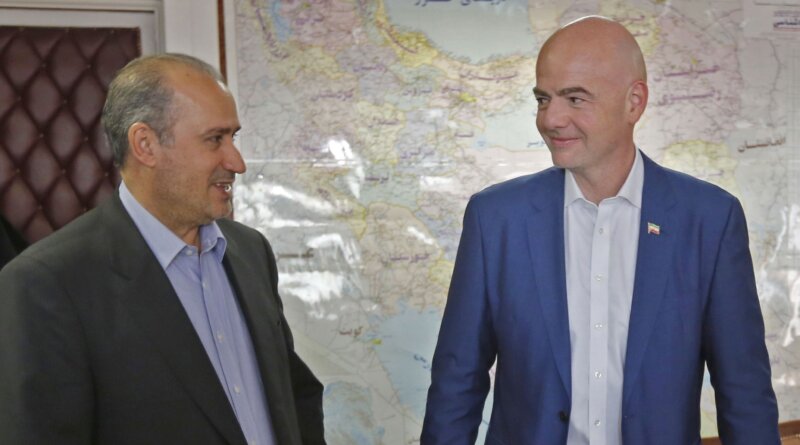US State Department Denies Visas to Iran Delegation for World Cup Draw
Iran World Cup visa denial has created significant tension ahead of the highly anticipated 2026 FIFA World Cup draw set to take place in Washington, D.C. The issue, which centers on the United States government reportedly refusing visas for the Iranian football delegation, has raised concerns about the intersection of international sports and politics.
Iran World Cup Visa Denial Casts Shadow Over 2026 Draw
According to multiple sources, including the Tehran Times, the U.S. State Department has not granted visas to Iran Football Federation President Mehdi Taj, head coach Amir Ghalenoei, and seven other officials. This refusal comes just weeks before the official 2026 World Cup draw, a critical event that determines the groupings and fixtures for the global tournament.
For Iran, the absence of its top officials at the draw is not only a logistical setback but also a symbolic one. The FIFA World Cup draw is a pivotal event for every participating nation, offering an opportunity for team representatives to network, engage with global football authorities, and prepare for the competition ahead. Without a presence in Washington, D.C., Iran’s national football program may face unique challenges in coordinating with organizers and ensuring their interests are represented.
Political Tensions Impact Iran’s World Cup Preparation
The Iran World Cup visa denial underscores ongoing diplomatic friction between Tehran and Washington. While sports are often seen as a bridge between nations, political realities can sometimes disrupt even the most universally cherished events. The U.S. government has not issued an official explanation for the visa decision, but such actions are typically rooted in broader diplomatic considerations beyond football alone.
Iran’s absence from the draw could hamper their preparations for the World Cup, affecting everything from logistics and planning to morale within the federation. As one of Asia’s most consistent World Cup qualifiers, Iran has always prioritized strong engagement at such international events. The timing of this decision—so close to the draw—intensifies its impact.
Reaction from the Iranian Football Federation
The Iran Football Federation has expressed frustration and disappointment regarding the visa denials. Federation officials argue that sports should remain separate from political interference, highlighting the importance of fair and equal treatment for all World Cup participants. Internal sources suggest the federation is now seeking alternative means to participate in the draw remotely or to appeal the decision through diplomatic channels.
This is not the first time international politics have affected the sporting arena, but the Iran World Cup visa denial is particularly notable given the global stage of the FIFA World Cup. The decision has generated debate among football fans and analysts, with some calling for FIFA to intervene and others accepting the situation as a byproduct of current geopolitical climates.
Looking Ahead: What This Means for the 2026 FIFA World Cup
The Iran World Cup visa denial could set a concerning precedent for future international sporting events held in countries with complex diplomatic histories. Questions now arise about the protocols in place to ensure that all qualified teams and officials can participate fully, regardless of political tensions.
For Iran, their immediate focus shifts to preparing for the tournament under challenging circumstances. Remote participation in the draw, logistical hurdles in communication, and the absence of their delegation in key discussions may all impact their World Cup experience. The global football community will be watching closely to see how FIFA and both governments respond in the coming weeks.
For More News and Updates
Stay tuned to for more news and ongoing coverage as this story develops and as new details emerge regarding Iran’s participation in the 2026 FIFA World Cup.
Opinion: Sports Deserve to Rise Above Politics
In my view, the Iran World Cup visa denial is a disappointing reminder of how political disputes can overshadow the unifying power of sports. The World Cup is meant to bring nations together through fair competition and mutual respect. While security and diplomatic concerns are real, denying participation in a vital event like the draw sends the wrong message to fans and athletes worldwide. FIFA and host nations must work harder to ensure that the spirit of the game prevails over politics, keeping the focus on the players, teams, and the beautiful game itself.
Your global gateway to nonstop football coverage:
News Goal
Share this content:
